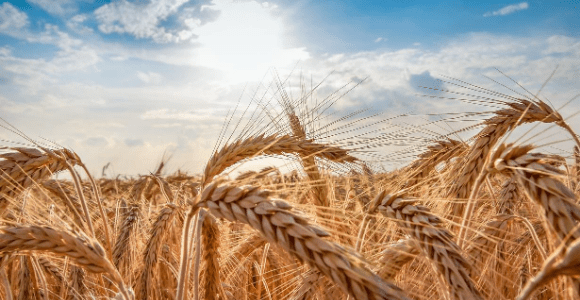Welcome readers! Please subscribe through the buttons on the right if you enjoy this post.

In Luke’s gospel,
“It is your Father’s good pleasure to give you the kingdom.” (Luke 12:32)
In Luke, Jesus says these words to those who are afraid of giving up their privilege. They are afraid that working toward a more just world will cause them to go without. They have put their trust in hoarded means of survival at the expense of others’ ability to survive and thrive.
A few years back, two of my children sat at the breakfast table before heading off to school. My daughter tried to correct something her younger brother was doing and he was not having it. What began as correction quickly escalated to resistance and a near verbal war. It was too early in the morning for these shenanigans, and so my wife Crystal broke in:
First, she addressed our daughter: “You are not his mother, I am! If you have a problem with something he is doing, you bring it to ME and let ME deal with him! Now apologize.”
Crystal then spoke to our son, “THIS is your SISTER! And although she was overstepping her place as your sister, she is still your SISTER and the words you said to her were unkind. You apologize to her now!”
Both gave each other reluctant apologies.
This is an ancient narrative within many cultures. At the very beginning of the Hebrew scriptures, there is a conflict between two siblings, and that conflict ends in murder. Some scholars understand the story of Cain and Abel to represent the conflict between the settled agriculture communities and nomadic shepherding communities of that time. This is a story of the beginnings of early land disputes: disputes over resources, possible resources being hoarded, and needed for all to survive and thrive.
Abel was a keeper of sheep.
Cain was a tiller of the ground.
Ancient wars between the stationary tillers of the soil and nomadic livestock herders marked the transition from hunter-gathering to an agrarian society. Think of the older sibling and younger sibling dynamic in every family. Add to this a narrative where the older is the oppressive landowner and the younger is the nomadic herder. Imagine tillers of the soil being the dominant group, and the herders being the hated and marginalized. Put those glasses on and then go reread the story of those two brothers.
“In the course of time Cain brought to the LORD an offering of the fruit of the ground, and Abel for his part brought of the firstlings of his flock, their fat portions. And the LORD had regard for Abel and his offering, but for Cain and his offering he had no regard.” (Genesis 4:3-5)
As in the crucifixion and resurrection narrative, we have been discussing over the last few weeks, though oppressors often claim “God is on our side,” the God of the Genesis story shows regard for the victim of systemic injustice.
We’ll unpack this more next.













